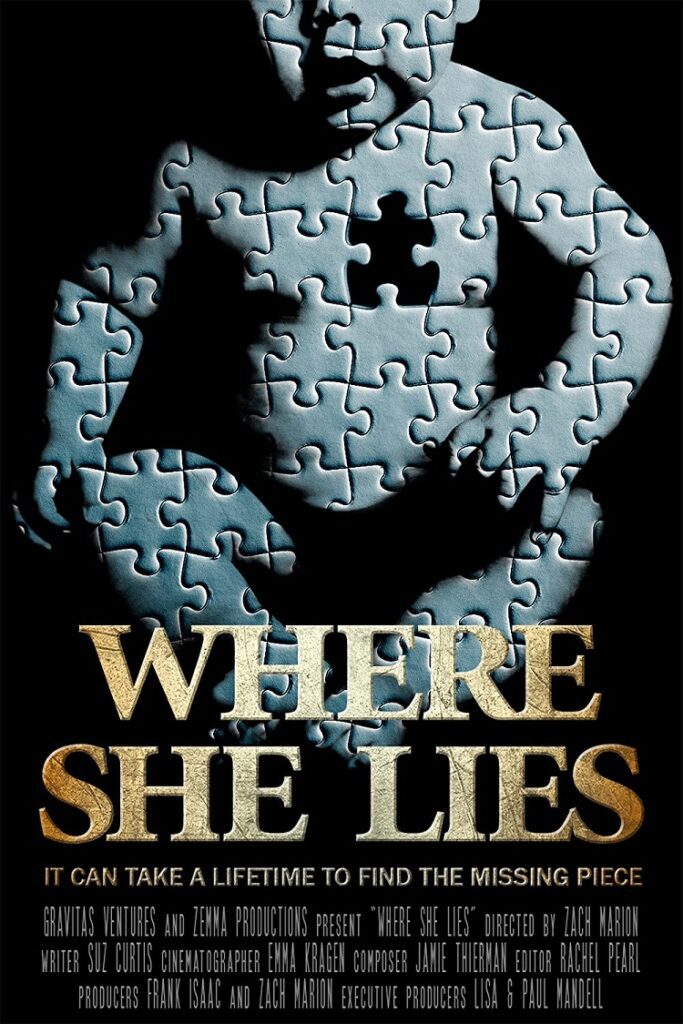
There is a point in the new documentary, Where She Lies, where one of the interviewees uses the phrase, “It was a different time.” This is a phrase that gets tacked onto horrendous stories from decades past. For many people, it serves as a way to excuse things like abuse, assault, and manipulation. But this flippant phrase does more than that, it also silences the stories and the humanity of the victims who experienced these horrendous things.
While researching another project, filmmaker Zach Marion read a short article about a woman named Peggy Williams who was raised in these “different times.” He reached out to her to see if he could help this woman find answers. Once he did, Zach learned more about Peggy and her incredible story. He learned that as a young woman Peggy was raped and blamed for her assault, but that she also became pregnant by her assailant. She had wanted to keep her baby but was continually pressured and shamed by her doctor and her family to give the baby up for adoption. But Peggy held fast in her desire to keep her child. However, upon arriving to the hospital to give birth, she was knocked out with drugs during her delivery, and when she awoke, her baby was gone. In a short period of time, Peggy was told conflicting stories that would whiplash her between extreme emotions. First, she was told that her baby was healthy and fine. Then, Peggy was told that her baby was dead. Finally, she was told that her baby was fine, but had been adopted out. Years later, Peggy’s mother reiterated this final story as she lay dying. Where She Lies is the documentary that chronicles the search to end the excruciating journey that began in 1962.
As I watched the film, I could not help but think of the psychological term, “gaslighting.” This term refers to a type of manipulation where the manipulator (or manipulators) work to get the victim to question their own reality, memory, or perceptions. And while “gaslighting” wasn’t a term Peggy was familiar with in the 1960s, it doesn’t change the fact that this is exactly what happened to her. The result of these heartbreaking, confusing, and conflicting stories and events were the motivation behind her 55-year journey of to find the truth about what happened to her daughter Darlene.
Watching this film, one can’t help but feel compassion and empathy for Peggy who doesn’t know if she could possibly celebrate a reunion with her daughter or begin the grieving process she has delayed for over half a century while holding onto hope that her baby Darlene is out there.
Where She Lies begins with so many questions and only leads to more. I was engrossed throughout the entire film which is full of mind-boggling revelations and heartbreaking surprises. It is a documentary that deals with many issues including rape, unplanned pregnancy outside of marriage, gaslighting, women’s reproductive rights, and the harm that can come from family secrets. But it also examines how difficult it is to fully experience life when someone lives in the liminal state between unresolved celebration and unresolved grief. Where She Lies and the story of Peggy Williams will stay with you. And unlike some documentaries where the involvement of the filmmaker can feel exploitive or serve purely as a device to push the story along, it is apparent that Zach Marion genuinely cares for Peggy Williams and wanted to help her find the truth.
At the heart of this documentary, Where She Lies is not only an incredible story, but it is also an incredible first feature for Zach Marion. I will definitely be on the lookout for his work in the future.
Where She Lies is available on VOD starting November 10 and has a runtime of 1 hour 40 minutes.